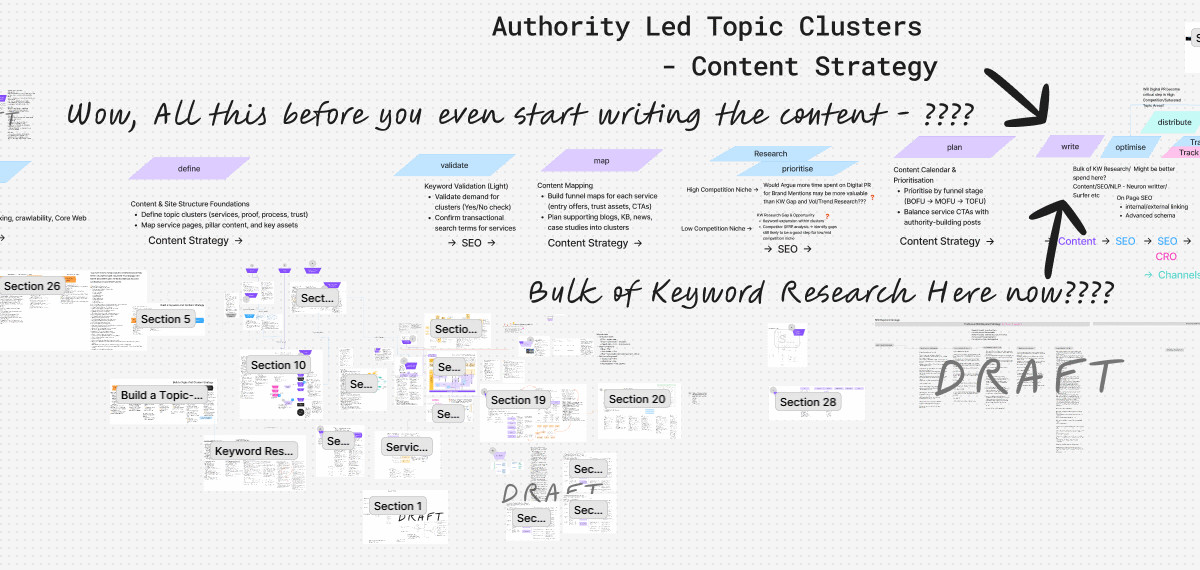
SEO in the AI Era: Why Authority-Led Topic Clusters Could Replace Keyword-First Strategies
Summary
Google’s latest update has shaken SEO to its core. Impressions are down, clicks are unpredictable, and AI is replacing traditional results. Chasing keywords isn’t enough anymore, authority is what wins in search and there is a new content framework: Authority-Led Topic Clusters
Ballarat, Australia. Digital marketing today is making me channel Ballarat’s gold rush heritage vibes: a crowded field where everyone is digging, but only those with the right tools and strategy unearth real value: A new approach to SEO is emerging: Authority-Led Topic Clusters.
Traditionally, SEO began with keyword research identifying terms, clustering them, and writing content around those phrases. But as the digital space becomes increasingly saturated, this method is showing its limits.
The latest Google core update has only amplified the problem. Debates about whether “SEO is dead” are resurfacing everywhere from case studies of brands hijacking AI Overviews, to LinkedIn think-pieces outlining 40 different “types of SEO.”
Across industries, SEO tools are reporting wild fluctuations: impressions dropping, clicks rising, traffic swinging unpredictably. Recent studies highlight the same trend impressions down, clicks up, and entire industries scrambling to adapt.
With the num=100 parameter scrapped, how we interpret metrics in many tracking tools will need to change. Rankings now shift daily, and visibility in SERPs no longer guarantees authority. As Google’s Liz Reid explained, “AI isn’t just enhancing search, in many cases, it’s replacing traditional results.”
For many SEOs, this chaos has created frustration. But for some, it’s sparking a new way of thinking and opening opportunities. “Starting with keywords in a mature niche like SEO or web design is like trying to buy vacant land in a city,” says Vanessa Wood of Brighter Websites. “It simply doesn’t exist anymore.”
Instead, Authority-Led Topic Clusters focus on building thematic authority: content structures that go beyond service pages and how-to guides. They weave together proof (case studies, testimonials), education (guides, FAQs), comparisons, thought leadership, and results-in-advance resources.
The result? A multi-dimensional content framework that demonstrates expertise, experience, authority, and trust (EEAT) the exact signals Google and AI-driven search engines prioritise.
“Keywords still matter,” Wood explains, “but they validate the strategy. They don’t define it.”
As the dust settles on this latest algorithm shake-up, one thing is clear: the rules of SEO are shifting. In a world where impressions can fall even as clicks rise, and where AI decides which brands to cite, authority-first strategies may not just be an advantage they may be the best way forward.
🔗 Deep dive: Authority-Led Clusters explained


